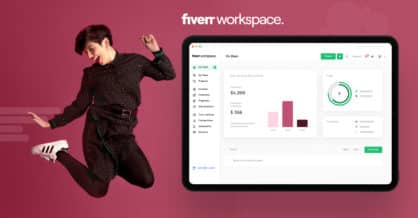For more tips for your digital nomad journey, download our free eBook ‘Anywhere’.
At some point in your life as a digital nomad the time may come for you to think about starting a family. Whether you and your partner set out on your nomadic journey together or you’ve met someone along the way, you now have a big decision to make: Do you continue with your nomadic lifestyle as you start a family, or do you return to your home country (one of them, at least) to a life of “normalcy?”
From this point forward you’re not just making decisions for yourself. You have to think about what’s best for your growing family.
It’s a big responsibility.
Family Support
If you choose to raise a child in a foreign country, you’ll most likely be doing it without the hands-on support of your extended family. Facebook and Skype are great for keeping in touch, of course, but they are no substitute for having someone there to look after the baby while you’re on a big project or need to run a few errands. And by living far from your parents or in-laws, you’re also forfeiting the bene t of cost-effective and trustworthy childcare.
There have been moments when I wished my family was closer, but since this is the only style of parenting I’ve ever known, I just get on with it. If you’ve been traveling for awhile, you’re probably used to adapting to new situations, anyway. Facebook does come into its own when it comes to connecting with other parents in your area. It’s great to be able to meet up with nearby nomads to socialize, share stories, and offer support.
Balancing work time vs family time
One thing that attracts many to the freelance lifestyle is the flexibility it provides—particularly when you’re on the move. You can surf in the morning, enjoy a few beers in the afternoon, jump on a plane to somewhere new in the evening, and still have a sustainable income. This freedom and flexibility can be a mixed blessing as a parent. With no fixed schedule, it’s easy to feel like you’re getting the balance wrong, either by neglecting your children, your work, or yourself.
In the earliest sleep-deprived days especially, tensions can run high as you and your partner figure out how to distribute rest time, baby time, and work time. If you’re both full-time freelancers, at least one of you will need to cut down your hours for a while. Make sure you discuss in advance about who that will be, and what your expectations are of each other as parents. If your work requires you to be online during certain scheduled windows, you’ll also have to coordinate this with your partner. Babies sleep when they feel like it, not when you need them to.
Family Healthcare
One of the things you care about most as a parent is your child’s health. As a single nomad you may have laughed in the face of health or travel insurance, but that level of irresponsibility won’t cut it as a parent. Giving birth abroad is one thing that worries many mothers-to-be. For me, it seemed like the obvious choice since I’d made Indonesia my home and didn’t want to be away for four to six months.
Why so long? Well, it’s not a case of just jumping on a plane, popping the baby out, and ying back again. First, airlines won’t let you y after a certain point in your pregnancy. The limit can be anywhere from 28 to 36 weeks, so check your airline’s policies before you book anything. Secondly, once the baby is born you’ll need to get him/her a passport, maybe two, and a visa for the country you’re returning to if required. Since obtaining a passport can take weeks or months, you can’t count on being able to leave by a particular date.
I know plenty of mothers who opt to move back home for several months so they can bene t from a familiar health care system and have their family close by. I also know many people who have stayed in Indonesia to give birth and have had no problem at all. Everyone has different needs and priorities, so you’ll need to work out what’s right for you.
Childcare and Education
Perhaps second to your child’s health is their education. You might not worry about it straight away, but it’s something you’ll have to figure out as they approach school age. Education options include local schools, international schools, homeschooling, and unschooling. Which one you choose will depend on how settled you are, how much you can afford for school fees, how much time you have, and what your views are on education.
a nanny or nding a daycare center. For me, having a nanny— although affordable—was just too distracting. Shut away in my home of ce I could still hear what was going on and I was often interrupted. Instead, we found a local daycare center (which is way more affordable and exible than the nurseries marketed at expats) and my daughter has settled in really well.
Experiences and Perspective
It’s easy to overlook the fact that letting your child grow up experiencing different cultures and countries is a great gift. It’s
more than just fancy summer holidays; they’re living and adapting to different ways of life and learning what it means to be a citizen of the world. This is something that no expensive education can buy.
The same goes for you as a parent. As a nomad, you’re not limiting yourself to one culture’s perception of how to parent. Even if you don’t agree with everything you experience in other countries, you will likely encounter new ways of doing things that just make sense. Having this broader perspective empowers you to make more conscious choices about your parenting, leading to better choices for your child. And isn’t that what being a parent is all about?


